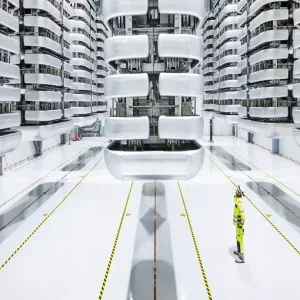
INPEX has again revised the plan of development (POD) for the Abadi LNG project in the offshore Masela Block, Indonesia by introducing a carbon capture and storage (CCS) component.
The Japanese oil and gas firm has submitted the revised PDO through its subsidiary INPEX Masela to Indonesian government authorities.
In 2019, INPEX revised its original POD by proposing to develop a $15bn integrated LNG project with an annual production capacity of 9.5 million tonnes of liquefied natural gas (LNG). The onshore LNG project will also produce up to nearly 35,000 barrels of condensate per day.
The project also includes the development of the Abadi gas field in Arafura Sea.
Originally, the plan was to build a floating LNG plant with a processing capacity of 7.5 million tonnes of LNG per year.
INPEX is developing the Abadi LNG project alongside Shell, about 150km off the coast of Saumlaki in Maluku Province. The former is the operator of the onshore LNG development scheme with a stake of 65% while Shell holds the remaining 35%.
The Japanese firm’s decision to incorporate the CCS component is driven by its February 2022 announcement of a long-term strategy to achieve a net zero carbon society by 2050.
INPEX plans to neutralise all carbon dioxide (CO2) released from the production of natural gas from the Abadi gas field by introducing CCS.
Additionally, other circumstances facilitating the implementation of the project have been restored to allow the current submission of the revised POD, said the company.
INPEX said that it anticipates resuming activities pertaining with the integrated LNG project in a sequential manner. These include various on-site activities and preparation to start front-end engineering design (FEED) work, which will be based on the approval of the revised POD by the authorities and considering other circumstances related to the development status of the project.
A final investment decision (FID) on the Abadi LNG project is aimed to be taken in the latter half of this decade with a target to begin production in the early 2030s.






